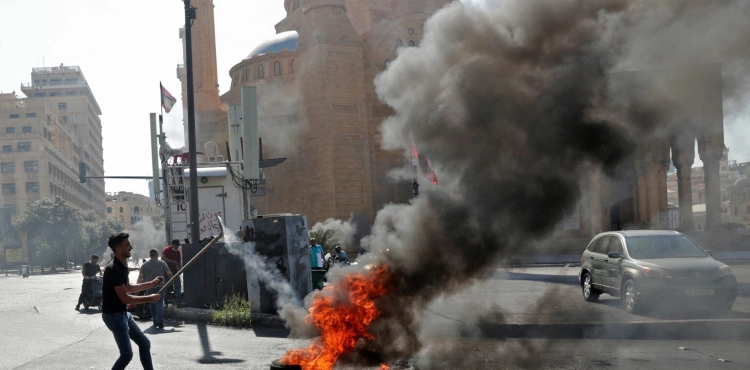Saturday, popular protests and road closures continued in various Lebanese regions due to the deteriorating living conditions and the high exchange rate of the dollar, which today crossed the threshold of 17,000 Lebanese pounds.
The security forces confronted the protesters, which led to injuries as a result of the stampede.
And the Lebanese army announced today, Sunday, that 10 soldiers were wounded while carrying out the mission of maintaining security in Tripoli, in the north of the country.
The Army Command - Orientation Directorate said, in a statement issued today, and reported by the National News Agency, that nine soldiers were wounded in the Al-Tal-Tripoli area yesterday, Saturday, after young men riding motorcycles threw sound bombs at a force of the army that was operating. for maintaining security during protests in the region.”
She pointed out that "a soldier was injured while an army force was carrying out the mission of maintaining security and preventing encroachment on public and private property in Al-Nour Square, Al-Jemiz Street in Tripoli, where it was pelted with stones."
It is noteworthy that Lebanon is witnessing a severe economic and financial crisis that led to an increase in the exchange rate of the dollar, as it crossed the barrier of 17250 Lebanese pounds, and a number of shop owners closed the doors of their stores in a number of areas due to the losses they incur as a result of the fluctuation of the exchange rate and the instability of the financial and economic situation.
Because of the financial and economic crisis, the purchasing power of citizens declined, in addition to the decline in the ability of the Banque du Liban to meet the government’s decision to support medicines and basic materials listed on the support regulations, which led to a decrease in the stock of fuel, medicines and infant formula in pharmacies, the loss of some medicines, a decline in the stock of medical supplies in hospitals, and the loss of Subsidized food.
Owners of private generators of electricity worked to turn off their generators in a number of areas due to the depletion of diesel fuel from the stations’ tanks, while the hours of power outages provided by the Electricité du Liban amounted to about 22 hours per day in most Lebanese regions.












